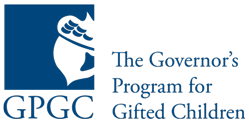Please let us know if there’s anything else you’d like to see or if you have any questions for specific instructors. We are also posting regularly on Facebook. You don’t have to join Facebook to see our posts. The link is: https://www.facebook.com/gpgcla/
Freshman (First Year) and Sophomore (Second Year) Classes:
Flex Science (Ryan Patin, Instructor)
To be updated.
Flex Composition (Meilyn Woods, Instructor)
To be updated.
Freshmen Humanities (Chris Hebert, Instructor)
This was Philosophy week in Humanities I. We spent time discussing Plato’s ideal government and students explored the idea of “The Noble Lie”. With this in mind, students were to craft bills with Plato’s ideas to go before The Program’s Government. We then discussed Plato’s Allegory of the Cave and how we see it today in anti-intellectualism and language shaming (especially with students picking up modern slang). We talked about the film “The Matrix” and how it tackles that concept. To get ready for Shakespeare, we discussed the ancient idea of Stoicism. And to end the week, we discussed the history of Rome.
Sophomore Humanities (Jessica Markstrom, Instructor)
This week, we viewed how government, economics, consumerism, status, and power influence dystopian environments. We read through pages 1-126 of Jennifer Government.
Monday – We discussed pages 2-34 of Jennifer Government. This covered part 1 of the book. In this section, we learned about the environment of the novel. In this society, there are no government regulations of business, a person’s last name is determined by their employer (example: Hack Nike works at Nike), there are no taxes, and consumerism is the ultimate value (both for those seeking profits and for those consuming a product). We discussed the social contract, anarchy, supply and demand economics, the stock market, property, consumerism, public goods, taxation, valuation of life, and freedom.
Tuesday – We discussed pages 36-60 of Jennifer Government. This reading covered the first half of part 2. I explained satire and we discussed different types of satire, so the students understood that this is an exaggerated satire. This helped provide perspective to some students who were taking the information at face value. In this section, the students had to ponder issues like criminal justice and responsibility. In this society, the government must receive private funding for retributive justice as they do not receive funding from taxes. Additionally, many of the characters in this novel do not take responsibility for their actions and attempt to displace that responsibility onto others. We discussed taxation, public goods, criminal justice, responsibility, death, the valuation of life, and had a side discussion on art as one student was fixated on visualizing a product from the novel rather than understanding how the product fits into the narrative of the novel.
Wednesday – We discussed pages 61-92 of Jennifer Government. This covered the second half of part 2 of the book. The society in the novel is obsessed with consumerism, money, status, and power. I started the class by playing the song “Material Girl” by Madonna. The students then had to explain, which, if any, of the characters of the novel did not align with the values in the song. I was pleasantly surprised at how many students knew this song. The students discussed the 2nd Amendment and gun violence in response to a slogan related to the NRA in the novel (the slogan was: Freedom is an assault rifle). We discussed materialism, the criminal justice system concerning representation and self-defense claims, transactional societies, computer viruses, entrepreneurship, customer loyalty programs, work/personal burnout, and trauma.
Thursday – We discussed pages 94-126 of Jennifer Government. This covered the first third of part 3 of the book. At the beginning of class, I showed the students two of Barbara Kruger’s collages regarding consumerism, money, identity, and happiness. Barbara Kruger was listed as one of Time Magazine’s 100 most influential people in 2021. The students were asked to relate the ideas of the collages to the novel and then asked to think about how they would implement those ideas or how they might avoid implementing those ideas in their utopia projects. We discussed what are the “true” “important” things in their life, how do we find a balance between making sure everyday necessities are taken care of while recognizing the important things in our lives, understanding that compatibility plays a role in relationships, how status and power can define relationships and a person’s standing in society, how fanaticism is unhealthy even if the intent of the fanaticism is good, correlations between both novels regarding dystopian societies (lack of care for the environment, lack of time to think, fast-paced societies, lack of interest in life, lack of respect for death, etc.), loyalty programs, computer viruses (including a brief explanation of the Stuxnet virus), business regulations (including a brief discussion on the recent tragedy of the Titanic submarine and the safety precautions on the vessel), and whether it’s important for consumers to have choices.
Friday –Students worked on their Utopia Project.
Senior (Third Year) Classes:
Senior Science (Josh Brown, Instructor)
To be updated.
Senior Composition (Meilyn Woods, Instructor)
To be updated.
Senior Humanities (Jessica Markstrom, Instructor)
This week served as a continuation of power and government through allegories. Students read Animal Farm by Orwell and Rhinoceros by Ionesco. We then moved our focus to the U.S. during the 20th Century with lectures on Jim Crow, the Civil Rights Movement, the Red Scare, and the House of Representatives Unamerican Activities Committee (HUAC). The students watched the play Are You Now or Have You Ever Been regarding HUAC’s treatment of the motion picture industry during the Red Scare. I also briefly explained Apartheid in South Africa and the South African Truth and Reconciliation Commission.
Monday – We discussed Animal Farm. Students compared The International to Beasts of England regarding how well Orwell satirized the Soviet Union. Students were particularly interested in the use of propaganda, the death of Boxer, and the phrase “some animals are more equal than others.”
Tuesday – We discussed Rhinoceros. Students asked to see pictures of rhinoceroses and pictures from productions of the play. They enjoyed the absurdity of logic and setting utilized in the script. They admitted they would not have recognized it as an allegory for fascism in 20th Century Europe if I had not mentioned it. Still, they thought the play successfully illustrated why it is important to think for yourself.
Wednesday – The students received a lecture on the history of slavery in the U.S. Constitution and Jim Crow. We discussed Plessy v. Ferguson, the 14th Amendment’s equal protection clause, and the Civil Rights Act of 1964. They also received a lecture on the Red Scare, Lavender Scare, and the House of Unamerican Activities Committee. I finished the lecture by focusing on Apartheid in South Africa and the Truth and Reconciliation Commission.
Thursday – Students started watching Are You Now or Have You Ever Been. Eric Bently, the play’s author, was a famous theater critic. Most of the play’s script is taken directly from HUAC hearings.
Friday – Students finished watching Are You Now or Have You Ever Been. For parents interested in watching the play yourself, you can do so for free on YouTube.
Musically Gifted Studies (Brandon LaFleur, Instructor)
This week we explored musical intervals combining into larger harmonic structures, chords. This led to a discussion of the intervallic construction various triads and 7th chords, and an exploration of their functional tendencies. We then used our newfound skills to analyze a section of a Bach chorale, and discovered that some musical situations have multiple satisfactory answers. This is ultimately why we refer to it as music theory.

